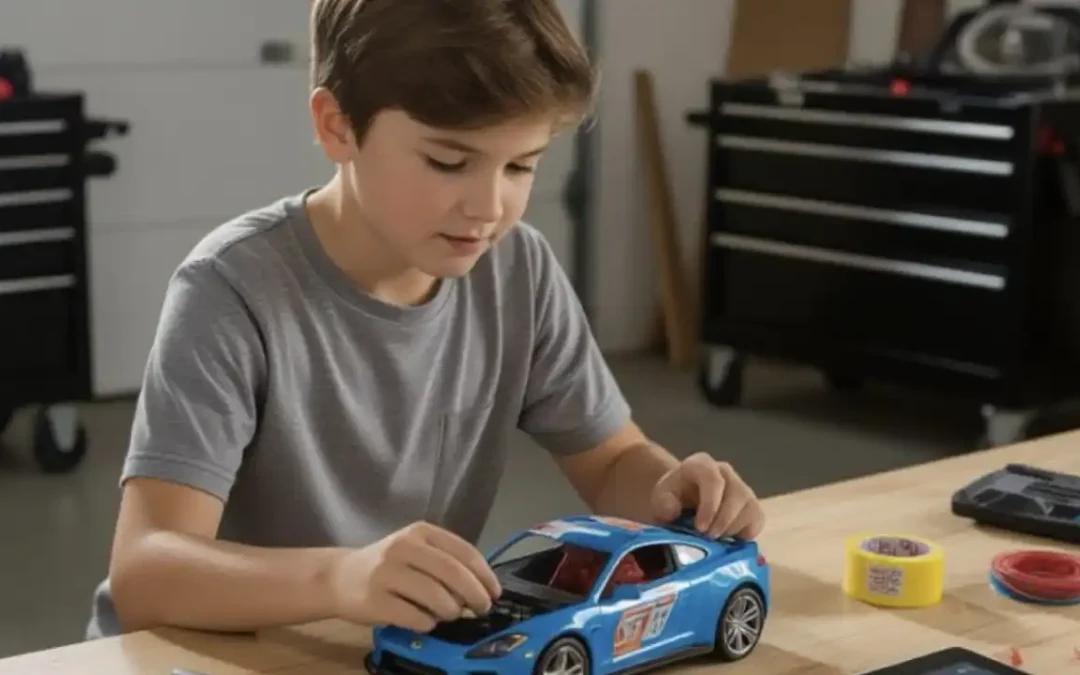
Creating Value as a Producer: Sharing Creations with the World
K
ids often tuck their creations away—a sketch stays hidden, a poem goes unread. Fear of judgment or the weight of perfection keeps them quiet. But sharing isn’t about showing off—it’s about making an idea real. In the cafés of Paris, artists read their poems and unveiled their canvases under flickering lights. They knew that expression gains depth when it enters the world. Ask your child, “How could you share your work?” That question turns hesitation into intention. It teaches that what we create finds its full meaning not in isolation—but in connection.
One starry evening, my daughter held a folded poem in her hands, unsure whether to share it. I asked if she’d like to read it aloud. Her voice wavered, then steadied. We clapped. She smiled. That night planted a seed. Now she posts her poems at school, shares them in class, and reads with pride. She’s discovered what the Parisian creators knew: that sharing invites growth—not just in the work, but in the self. Her poems aren’t polished performances. They’re offerings—and with each one, her confidence grows.
Celebrate the moment something is made—then invite the next step. After a project, ask how it might be shared: with a sibling, a neighbor, a teacher, or a broader audience. For younger kids, keep the setting small and affirming. For teens, support broader outlets—school clubs, local galleries, blogs, or online showcases. Offer to display their work or talk about it at dinner. The goal isn’t exposure—it’s engagement. Sharing, when chosen freely, transforms effort into impact. That’s how a young producer begins to shape the world.
Creating Value as a Producer

Creating Value as a Producer: Think Beyond Yourself
Help children consider the needs and feelings of others. Compassion and awareness support empathy and moral maturity.

Creating Value as a Producer: Building Skills to Contribute
Guide children to develop practical skills that matter. Contribution nurtures independence, pride, and a sense of capability.

Creating Value as a Producer: Understanding the Role of a Producer
Teach children they can create value in the world. Understanding purpose and contribution builds confidence and initiative.
Table of contents

Primordial Soup for the Mind: Navigation
Navigate the book Primordial Soup for the Mind.
TIPS
- Spark bold sharing, not performance anxiety
- Praise the act of offering, not just the polish
- Let them choose when and how to share
ACTIVITIES
- Share Shine: After a project, ask “How could you share this?” and plan its debut
- Display Space: Choose a spot at home for creations, rotating weekly
- Project Circle: Invite friends or family to view or respond to their work
TOOLS
Fridge for display (optional).

Download “Primordial Soup for the Mind: A Parent’s Guide to Nurturing Intellectual Growth”
Enter your information to get this article and hundreds more as part of the FREE book Primordial Soup for the Mind.
Share your thoughts with the Thought Academy community in the Comments section below.

Sharpen those skills!
Enter your information to get our FREE practice exercises so you can hone your critical thinking and reasoning skills!







0 Comments